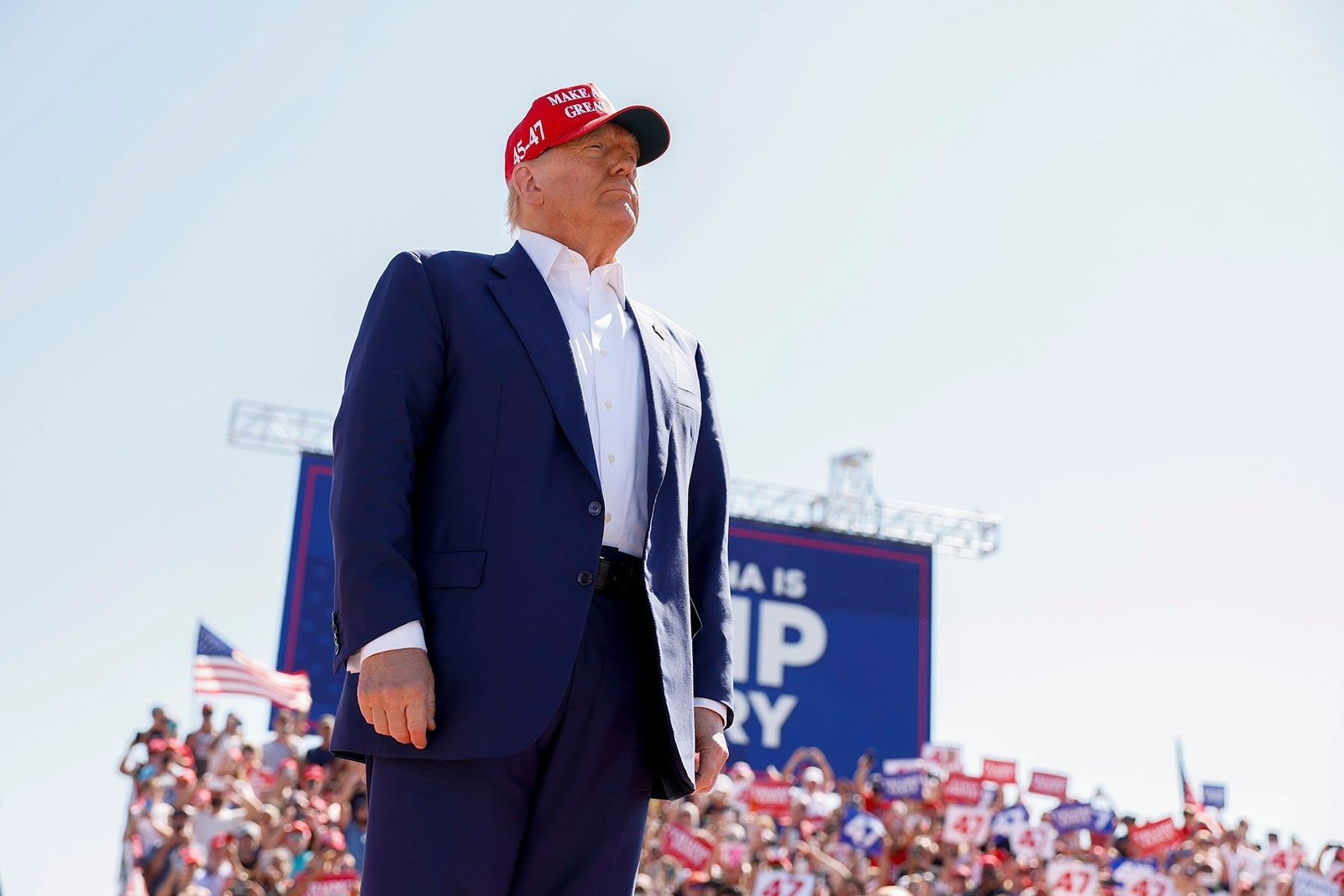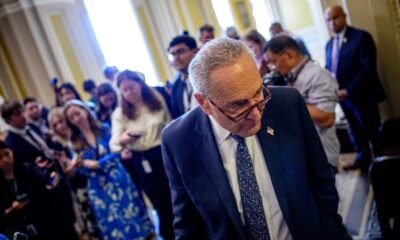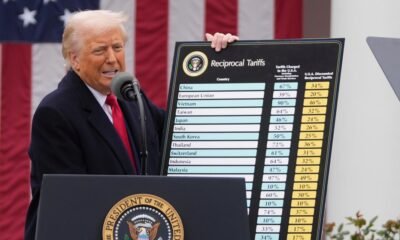2024 election
Trump Shifts Gears: Targeting Women Amid Unpopular GOP Abortion Restrictions

In recent events, former President Donald Trump has made significant remarks aimed at women voters, emphasizing a promise to “protect” and “care for” them if elected. While addressing supporters at a rally in Wilmington, North Carolina, he sought to reassure women by declaring they would “no longer be thinking about abortion.” Yet, he failed to provide any concrete policies to support these claims.
Trump’s comments came amid a broader context of concern for the gender gap in this election cycle. Recent polls indicate that Vice President Kamala Harris holds a substantial lead among women voters, suggesting that Trump’s attempts to reach this demographic may be falling short. A national poll by The 19th News and Survey Monkey indicated Harris had a three-point advantage over Trump among registered voters.
Early Sunday morning, Trump took to his social media platform, Truth Social, to express his views on women’s health and safety, stating they are worse off than during his presidency. His statements lacked supporting evidence and contradicted available data. Additionally, he repeated false claims regarding abortion, asserting that Democrats advocate for extreme measures against unborn children.
During his rally, Trump asserted, “I WILL FIX ALL OF THAT, AND FAST,” claiming that under his leadership, women would finally find happiness and security. However, he provided no specifics on how he would achieve these goals, focusing instead on his previous stance on states’ rights concerning abortion.
In contrast, Harris has made women’s reproductive rights a cornerstone of her campaign. Addressing a crowd in Atlanta, she connected Trump’s policies to the tragic stories of women impacted by restrictive abortion laws, highlighting the preventable deaths of individuals like Amber Thurman and Candi Miller. Her campaign actively promotes the message that access to abortion is an essential aspect of freedom.
Trump’s record includes the nomination of three conservative justices who played a role in overturning Roe v. Wade. His efforts to decentralize abortion regulations reflect a broader conservative strategy, despite national sentiment leaning toward preserving abortion rights. Trump has avoided committing to a federal abortion ban, maintaining that the current state-based approach suffices.
Meanwhile, Harris’s campaign has launched initiatives such as a bus tour aimed at rallying support for reproductive rights, underscoring the urgency of the issue in battleground states. Her campaign has notably avoided framing her candidacy through the lens of her identity, even as she stands to become the first woman president and the second Black president.
The Republican response has included strategies that appeal to traditional definitions of masculinity, further complicating the political landscape. Trump’s interactions with male-dominated icons like UFC President Dana White and professional wrestler Hulk Hogan indicate a deliberate move to solidify his base among younger men.
Notably, Trump’s past controversies, including multiple accusations of sexual misconduct, continue to cast a shadow over his campaign. Recent polling reveals a significant preference for Harris among women, with a Suffolk University/USA Today survey indicating a 21-point lead for her over Trump. This trend suggests a potentially historic gender gap in the upcoming election.
As the election approaches, it remains uncertain how effectively Trump can sway women voters. The implications of these dynamics could prove pivotal in shaping the electoral outcome.


















